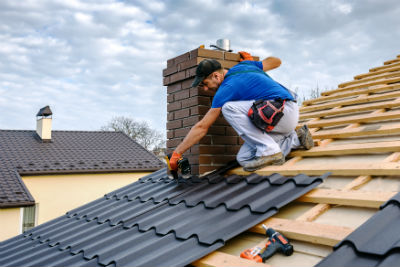
Not again. Your bathroom is in shambles. The plumber remodeling your bathroom has left dust and dirt all over the tile floor. They’re not coming back until tomorrow and you wish they’d clean up after themselves between workdays.
If this sounds like you, you’re not alone. Many homeowners struggle to find reliable contractors that meet their expectations. But if you take the right steps in researching the right home contractor, whether that’s a roofer or an electrician, you can worry less and expect more.
Follow these 7 steps to find a reliable home contractor that you can trust:
1. Know what you want
Before starting your search, you need to know what you want. That way, you can be sure you find someone that meets your exact needs. You don’t want to start talking to potential contractors when you’re unclear on what you need. Otherwise, they might lack the right skills or try to upsell you on unnecessary services. If you know what you want, you won’t waste each other’s time.
2. Be proactive
To find the best person for the job, you need to give advance notice. Often, the best contractors are also the busiest because their work is in high demand. So you need to plan ahead so you can work with their schedule as much as possible.
Being proactive also means maintaining an evolving list of contractors that you trust. That way, when the time comes, you already have a list of people to call.
3. Prospect
Now it’s time to get to work and actively seek out potential workers. Ask for referrals from those you trust—neighbors, friends, relatives, coworkers, homeowners, and other contractors. The wider you cast your net, the more leads you’ll get.
If you’re still coming up short on recommendations, check out online job board sites like Angi and HomeAdvisor. They have thousands of vetted contractors and can help you narrow down your search. Simply search for a service, type in your zip code, and fill out a preliminary questionnaire to see matching businesses that can do the job.
4. Do your research
Once you have a prospect in mind, do your research. Look at their website, past projects, and online reviews to get a better sense of them and their work. Anything you can learn upfront can help you weed out options you don’t want to waste time pursuing further.
5. Interview
An interview may seem a bit formal, but it’s an important screening step. Ask a potential contractor questions that paint a picture for how the project will go. Here are some questions to cover:
- How long have you been in the business?
- What experience do you have with this type of project?
- What subcontractors do you use?
- How will you clean up at the end of the day?
- Who are your suppliers?
- What is your timeline for completion?
- Do you have an estimate?
- What will the payment schedule be?
- When can you start?
You’ll also want to ask for references and verify that they have the appropriate license, insurance, and permits to do the job. You can even perform a background check if you want.
Interview a handful of candidates so that at the end of the day, you have different options to choose from. Then decide on the contractor you feel best about.
6. Get a proposal
Now you’re ready to get a proposal or a bid. Have your top choice deliver a detailed offer that outlines the scope of work, responsibilities, time frame, supply quantities, and a fixed price.
Read over the proposal carefully and make sure it meets your budget and expectations. If it doesn’t, offer to negotiate terms and make amendments.
7. Sign a contract
Once the proposal satisfies both parties, you’re ready to sign under the dotted line. At this point, the proposal becomes the contract. But remember, a contract is legally binding. So you need to make sure to cross all the t’s and dot all the i’s.
The more detailed the contract, the better. So consider the following:
- Include ground rules for small but important things like parking, clean-up, and even bathroom use during the job.
- Avoid sacrificing quality for a lower price. This will only hurt you in the long run since a poorly done job will require you to pay for additional repairs later on.
- Never agree to pay more than 10% of the total price before the project begins. And don’t pay the final amount until the job is complete. This helps ensure that any problems that arise get fixed.
- Don’t pay in cash. Pay with a credit card if at all possible. That way, you have more recourse with the credit card company if there are remuneration disputes.
Well, there you have it. A foolproof method for finding the best home contractor. Whether you’re looking for a painter, electrician, or roofer, following these simple steps will put your project in the right hands.
Story by Darren Wilson










